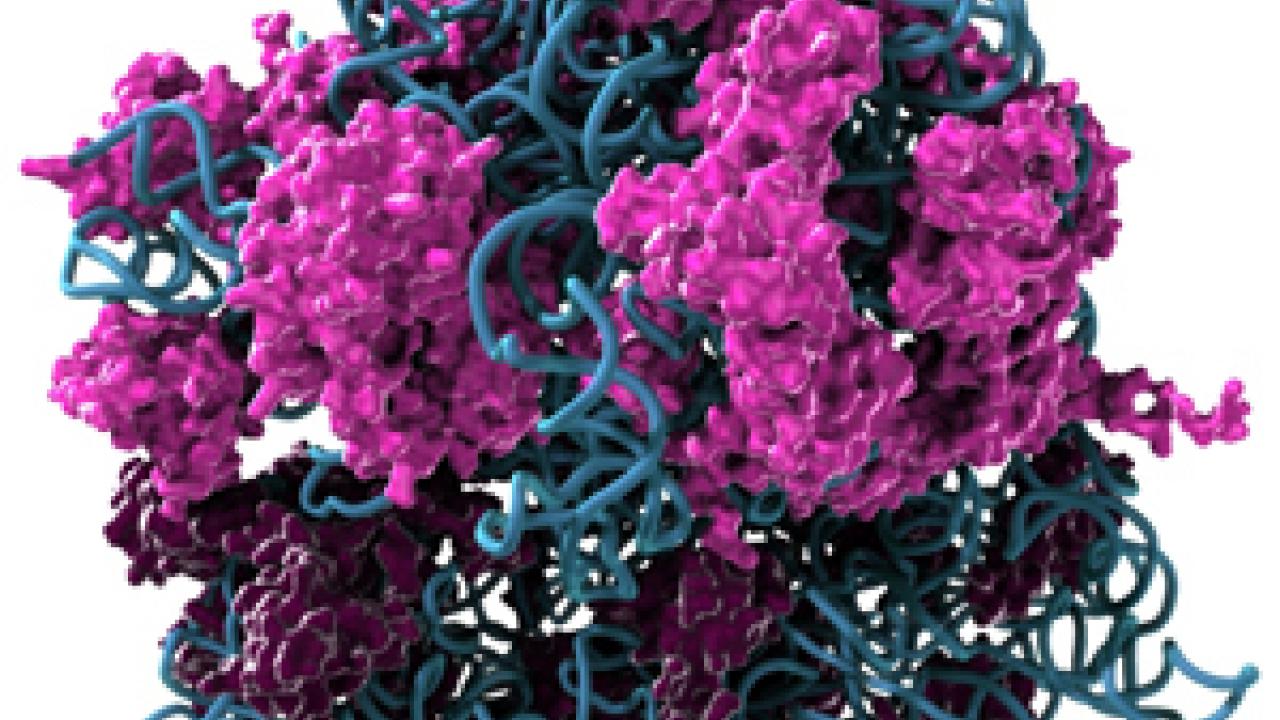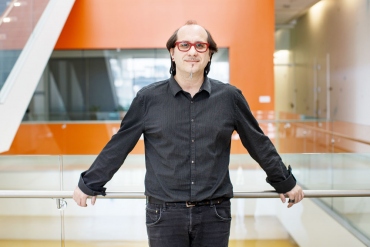
The structure of a ribosome. The technique of ribosome profiling, developed by UCSF biochemist Jonathan Weissman, PhD, was used to spot differences between KRAS and MYC/KRAS cancers. Image by Dale Muzzey/UCSF
In laboratory experiments, UC San Francisco researchers successfully beat back the growth of aggressive liver cancers using a surprising new approach. Traditionally, targeted cancer therapies aim to disable proteins borne of cancer-driving genes. Instead, the UCSF scientists prevented these proteins, including those that shield tumors from the immune system, from being built in the first place.
As reported in Nature Medicine on January 14, 2019, using both a genetic approach and a drug currently in clinical trials that directly inhibits translation – the cellular process by which genetic material is transformed into proteins – the researchers were able not only to slow tumors’ rampant growth in a new mouse model of liver cancer, but also to block the cancer’s ability to evade the immune response.
“This is a new avenue for liver cancer intervention,” said study senior author Davide Ruggero, PhD, an expert on how cancer cells corrupt normal protein synthesis to spur their own growth and survival. “There is a particular subset of proteins, more beneficial to cancer cells than to normal cells, called the ‘cancer proteome.’ Once we know the mechanisms by which cells shift to favor that proteome, we can develop drugs to target it.”
Primary liver cancer, or hepatocellular carcinoma, is the second leading cause of cancer deaths worldwide, responsible for 600,000 deaths per year. About a third of these cancers are treatable at an early stage if the tumors remain localized to the liver. But five-year survival rates plummet when liver cancer spreads to other organs, and few targeted therapies can slow its spread.

One promising treatment is cancer immunotherapy, which unleashes the body’s immune system to take down tumors. Key to the development of immunotherapy treatments was the discovery that many cancers escape immune attack by donning clever molecular disguises, known as “checkpoint” proteins. Aggressive liver cancer cells, for instance, coat themselves in a checkpoint protein called PD-L1, which clicks into a receptor on the surface of immune cells, called PD-1, and effectively switches them “off.”
One class of immunotherapy drugs, called checkpoint inhibitors, blocks checkpoint proteins to render tumors visible and vulnerable to attack. But the drug atezolizumab (Tencentriq), which blocks PD-L1, has not yet been effective at treating aggressive liver cancer. The new research from Ruggero’s lab offers an alternate strategy to crack the cancer’s defenses – checkpoint proteins don’t need to be blocked if they are never built to begin with.